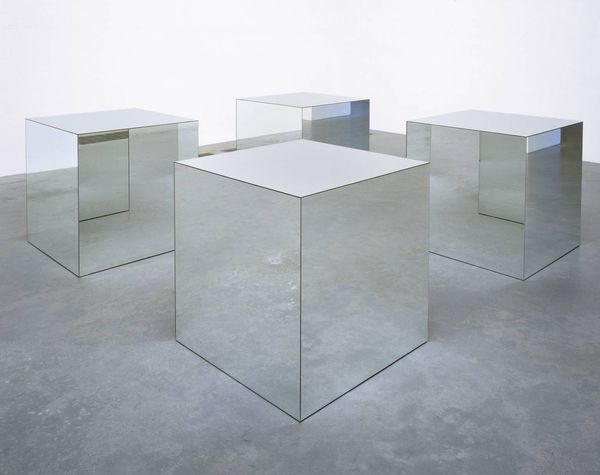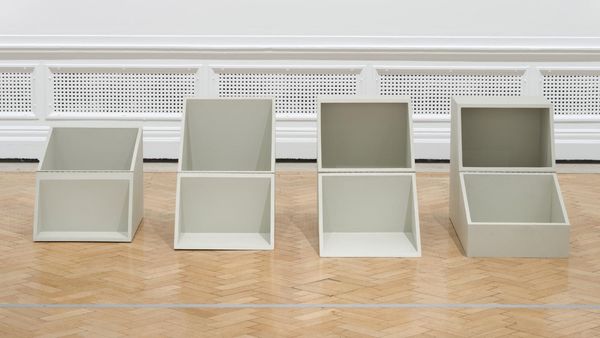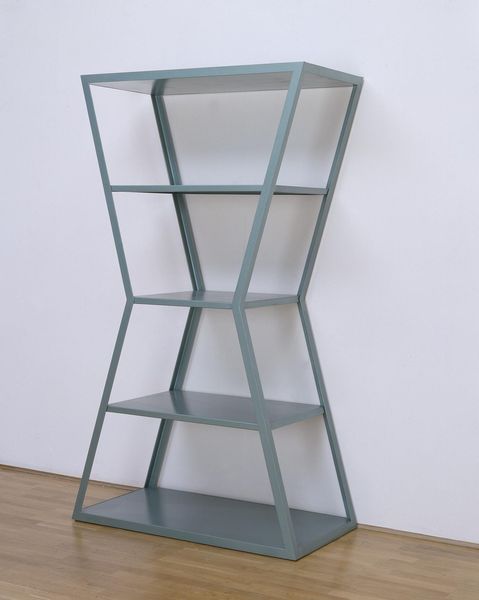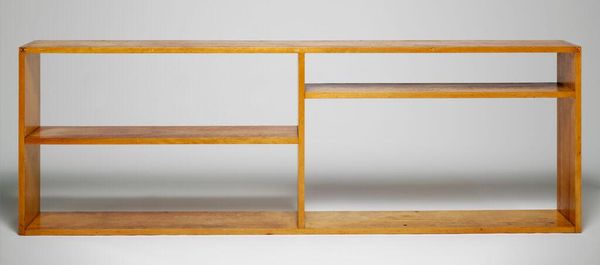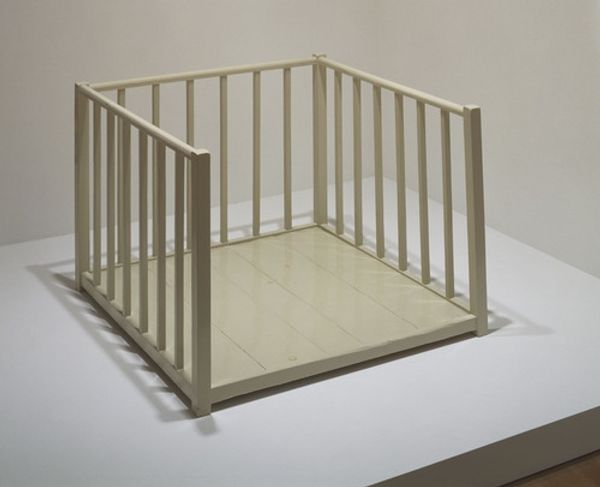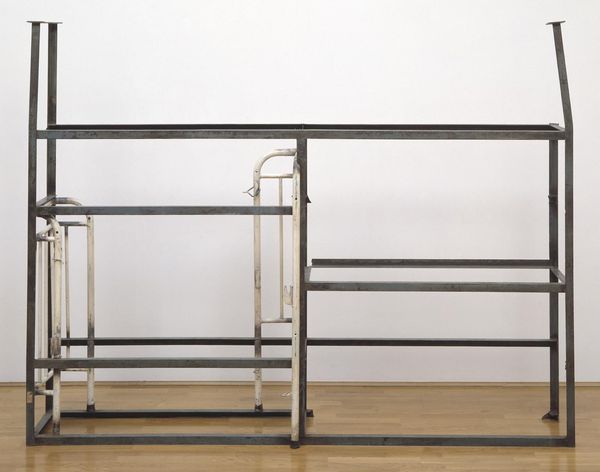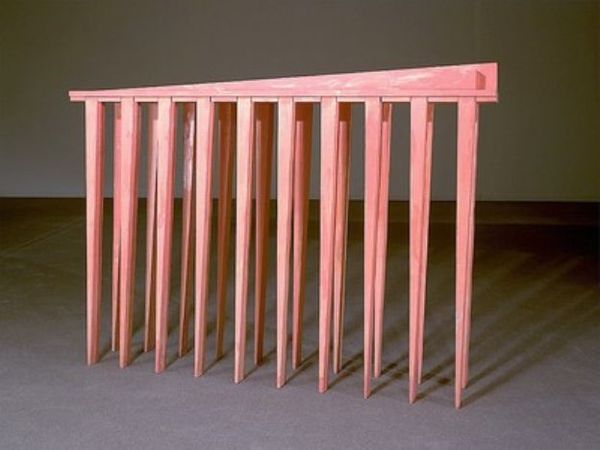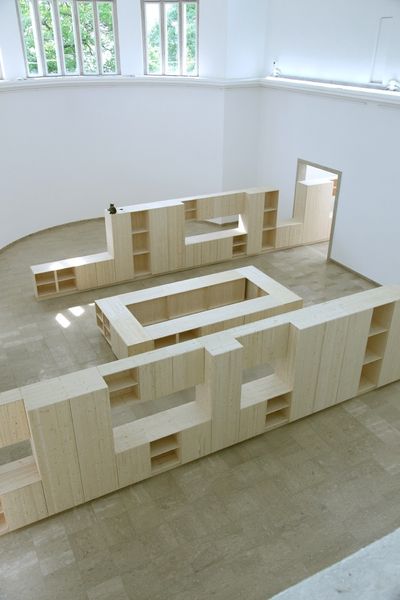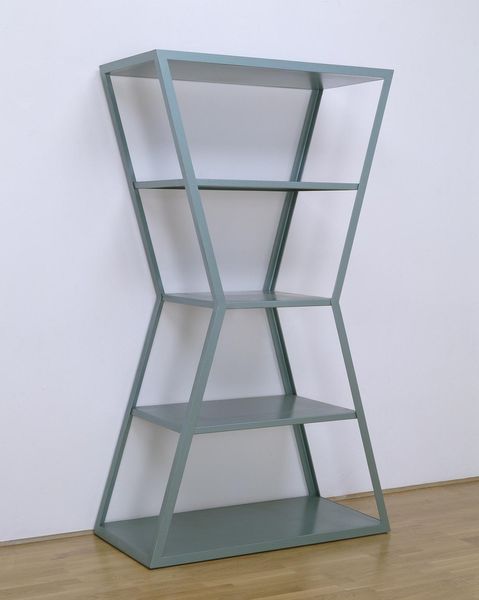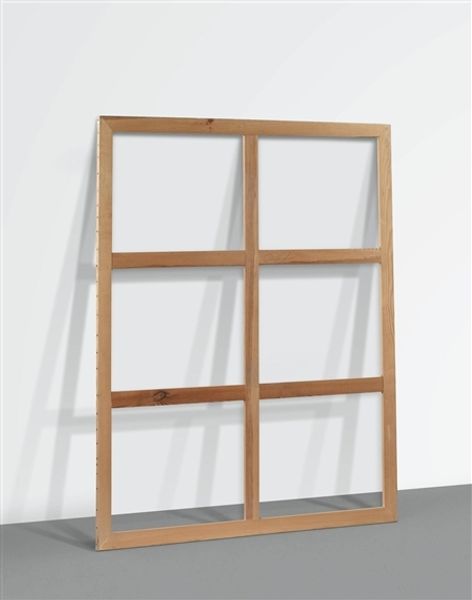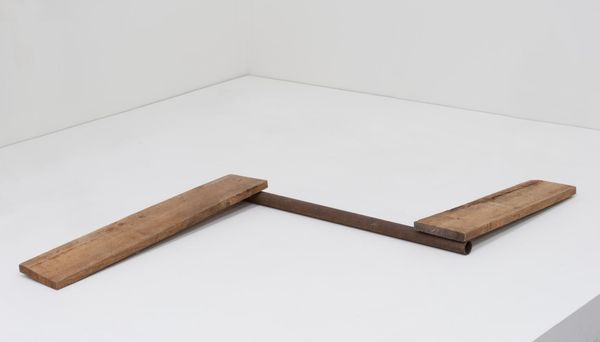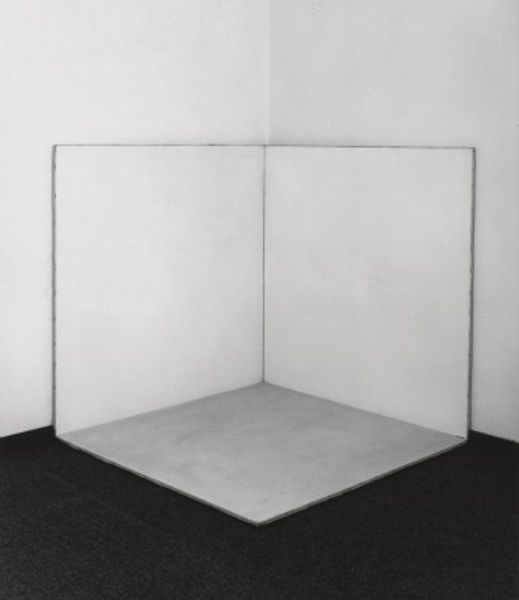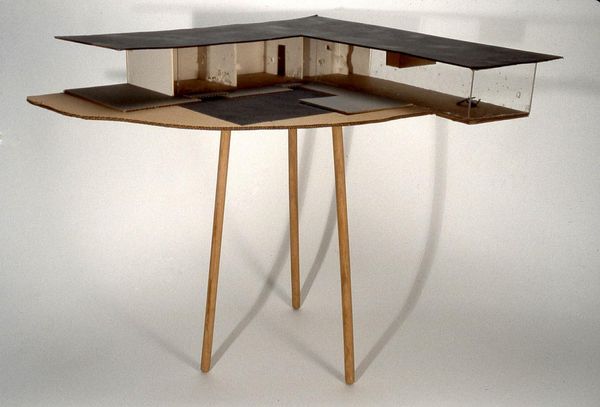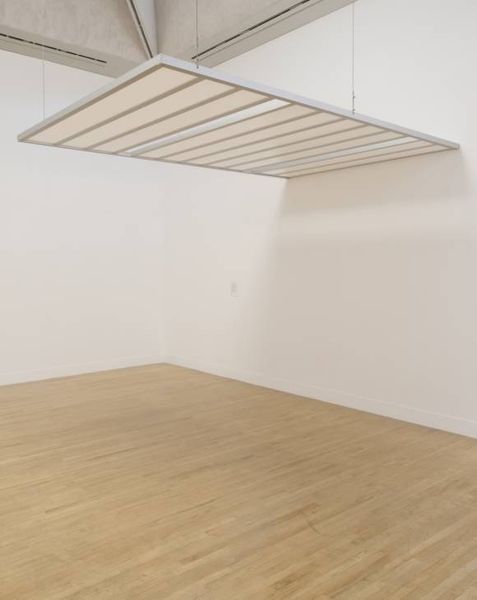
Dimensions: object: 1600 x 3054 x 2330 mm
Copyright: © The estate of Sol LeWitt | CC-BY-NC-ND 4.0 DEED, Photo: Tate
Curator: Sol LeWitt's sculpture, "Two Open Modular Cubes/Half-Off," presents a fascinating exploration of form. What are your initial thoughts? Editor: I am immediately struck by its stark presence. The modular cubes feel like skeletons, almost fragile despite their size. There is a ghostly quality to the white frames. Curator: LeWitt's work is all about the process, the industrial materials, and the modular construction that democratizes artmaking. These cubes challenge traditional notions of sculpture. Editor: Absolutely. By removing the solid mass, LeWitt highlights the gallery space itself. The work exists as much in the negative space as in the physical materials. It reflects how art institutions validate certain types of labor, doesn’t it? Curator: Precisely. It provokes questions about how we define art, and how such pieces became objects of value and contemplation. Editor: It's a statement, not just on form, but on the art world itself. Curator: Indeed, a thought-provoking intersection of object and institution. Editor: I’ll leave with that thought.
Comments
tate 10 months ago
⋮
http://www.tate.org.uk/art/artworks/lewitt-two-open-modular-cubeshalf-off-t01865
Join the conversation
Join millions of artists and users on Artera today and experience the ultimate creative platform.
tate 10 months ago
⋮
In 1982 the artist wrote, 'the most interesting characteristic of the cube is that it is relatively uninteresting. It is best used as a basic unit for any more elaborate function, the grammatical device from which the work may proceed.' This sculpture is one of a group on the same scale, beginning with a single cube and using it as a building block or module in various combinations. This is the key example of the 'half-off' sculptures, where the cubes abut along half of one side instead of being aligned. The series includes works with three half-off cubes and with five half-off cubes alternately projecting and receding in a zig-zag. There are potentially many additions to the basic form. Gallery label, August 2004
